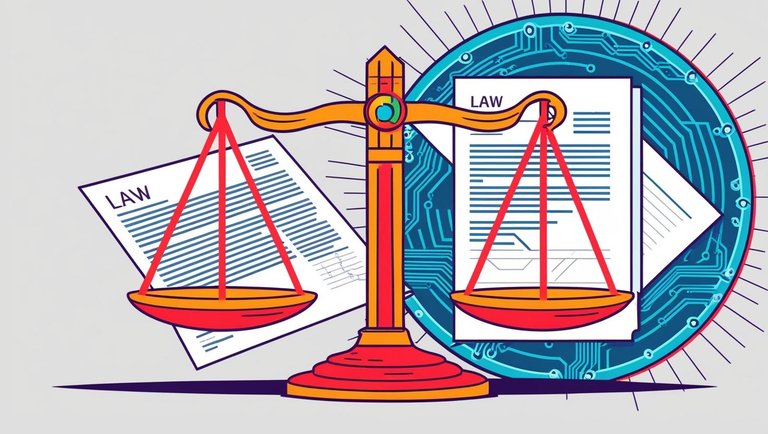
The legal industry has long relied on traditional contracts—written agreements that require lawyers, witnesses, and enforcement mechanisms. However, the emergence of blockchain technology has introduced smart contracts, self-executing digital agreements that could revolutionize legal transactions. But can blockchain truly replace traditional legal agreements?
What Are Smart Contracts?
Smart contracts are self-executing agreements with terms written into code. They operate on blockchain technology, automatically executing transactions when predefined conditions are met. These contracts remove the need for intermediaries, reducing costs, delays, and potential human errors.
Advantages of Smart Contracts in Law
Automation and EfficiencySmart contracts eliminate the need for manual processing, speeding up transactions and reducing paperwork.
Cost ReductionWithout lawyers and intermediaries, transaction costs decrease significantly, making legal processes more affordable.
Security and ImmutabilityBlockchain ensures that once a contract is recorded, it cannot be altered, reducing the risk of fraud or disputes.
TransparencySince blockchain records are public and verifiable, all parties can access and verify contract terms, enhancing trust.
Global AccessibilitySmart contracts operate on decentralized networks, allowing international transactions without jurisdictional complications.
Limitations and Challenges
Legal RecognitionMany jurisdictions do not yet recognize smart contracts as legally binding, posing regulatory challenges.
Lack of FlexibilityUnlike traditional contracts, smart contracts cannot be easily amended or interpreted based on unforeseen circumstances.
Security RisksBugs in smart contract code can be exploited, leading to financial losses or breaches.
Enforceability IssuesIf a dispute arises, enforcing a smart contract in a traditional court may be difficult due to legal uncertainties.
The Future of Smart Contracts in Law
While smart contracts present a promising shift in the legal landscape, they are unlikely to completely replace traditional agreements soon. Instead, a hybrid approach may emerge where smart contracts handle routine transactions, while complex legal matters still require human intervention. Governments and legal systems must adapt to these innovations, ensuring that laws evolve alongside technology.
Conclusion
Blockchain-powered smart contracts have the potential to reshape legal agreements by offering efficiency, transparency, and security. However, until regulatory frameworks fully integrate them, they will complement rather than replace traditional legal agreements. As technology evolves, the legal industry must adapt to harness the benefits of smart contracts while addressing their challenges.



(My Hive Philippines Family)
Follow me on my social Media Accounts
- Facebook: Jaka Emmanuel Lumanao
- Twitter: @jemmanuel
- Instagram: @jakaemm
- Youtube: Jaka Vlogs
- Steem/Hive: @jemmanuel